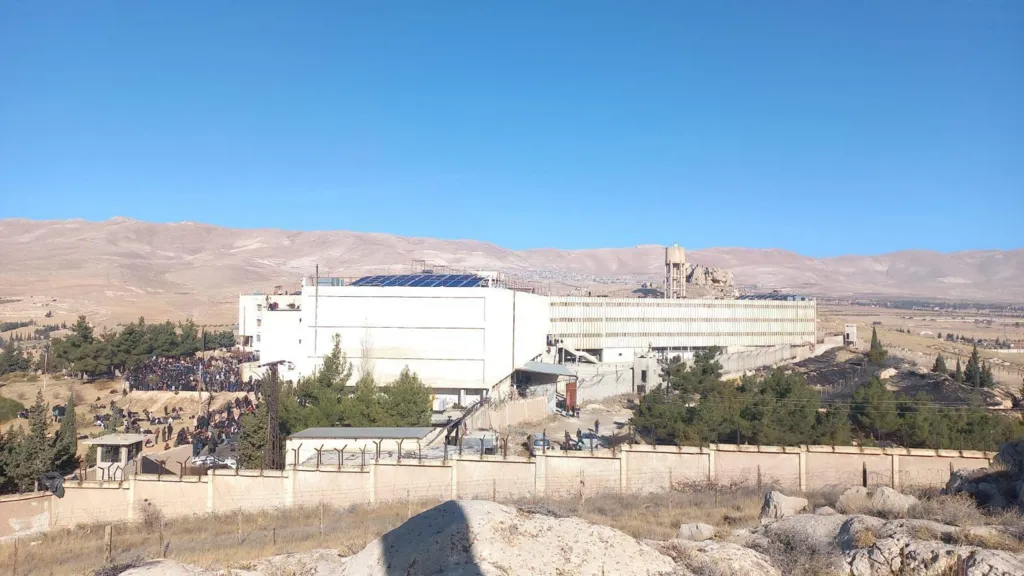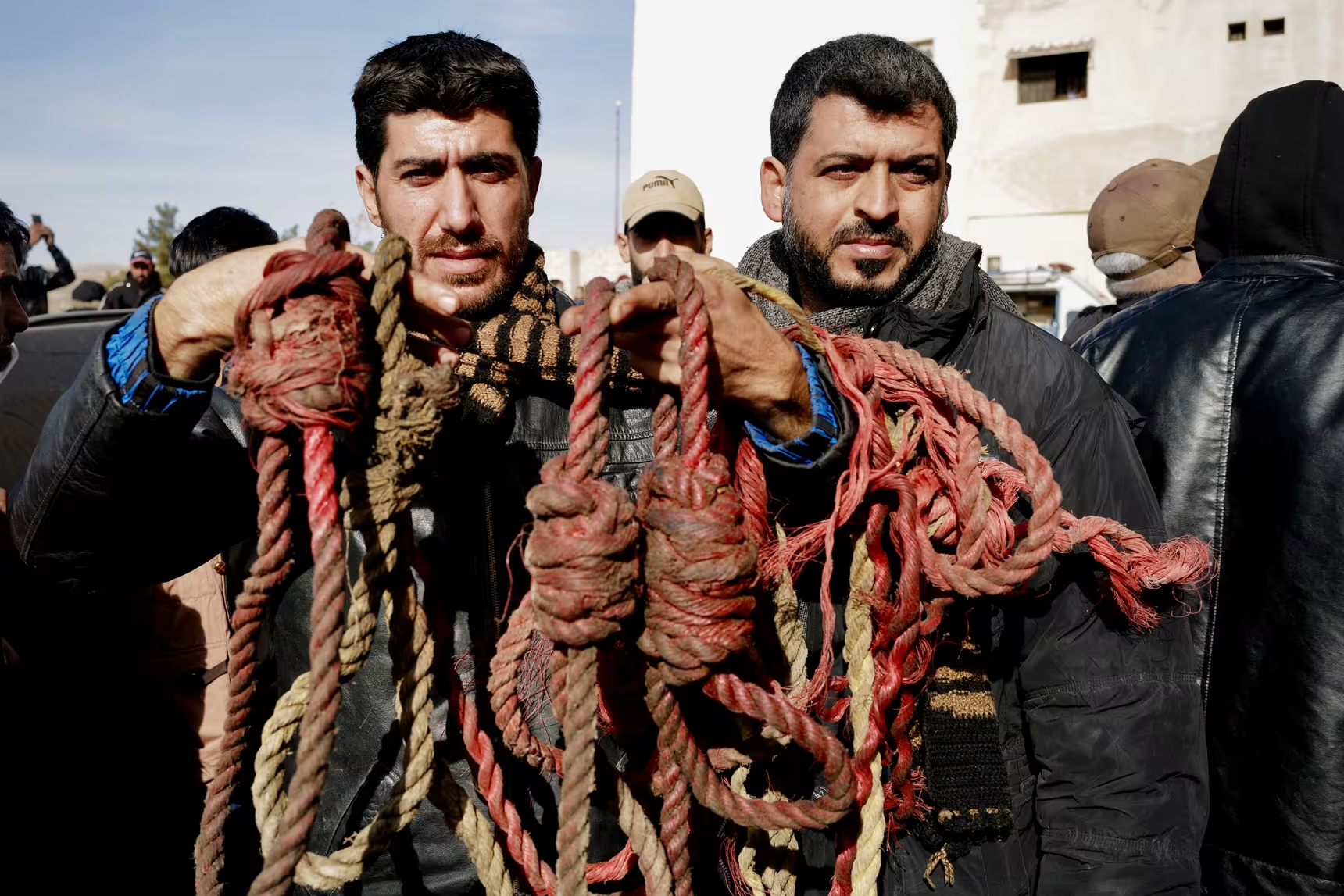Saydnaya Military Prison, Damascus, Syria
"Where is everyone? Where are everyone's children? Where are they?""My heart has been burned over my brother. For 13 years, I kept looking for him.""I prayed that they would reach Damascus just so they can open up this prison."Ghada Assad, Damascan"People expected many more to be here ... They are clinging to the slightest sliver of hope.""There are other prisons. The regime had turned all of Syria into a big prison."Ghayath Abu al-Dahab, spokesman, White Helmets search and rescue group"During our time in the [Saydnaya prison] yard, there was beating. When going to the bathroom, there was beating. If we sat on the floor, we got beaten.""If you look at the light, you are beaten.""Everything is considered a violation, Your life is one big violation to them."Firas al-Halabim, freed prisoner"I know the pain, I know the loneliness and also the hopelessness you feel because the world let you suffer and did nothing about it.""They forced my cousin whom I loved so much to torture me, and they forced me to torture him. Otherwise, we would both be executed."Omar al-Shogre, former prisoner in Saydnaya prison as a teen
 |
| The Saydnaya Prison pictured on Monday morning by the White Helmets - a Syrian civil defence organization White Helmets |
They left their homes with hope that they would finally discover what had happened to their relatives, taken to the notorious Saydnaya military prison, anxious to see them, to welcome them back to life, now that the regime of Syria's dictator, President Bashar al-Assad had been brought to an abrupt end. Thousands of Syrians from Damascus converged on the prison; tens of thousands from beyond the capital city, eager to reach the prison site, prepared to celebrate the longed-for release of their relatives.
Unfortunately, after disgorging prisoners in the initial stages of the insurgents opening cell doors and releasing the prisoners, a strange, and inexplicable absence of prisoners manifested even as people began wandering through the corridors, opening cell doors, expecting to see people emerge from their tortuous ordeals, at long last. The 'slaughterhouse' of Saydnaya prison held no more prisoners. For days people looked for signs of family members disappeared by the regime a decade ago. There were no more to be seen within the sprawling prison confines.
People used sledgehammers, shovels and drills in their desperation, pounding holes in floors and walls in the belief that secret dungeons they could not yet see held many more prisoners awaiting release. Even civil defense officials deployed to assist in the search were nonplussed. No one could fathom where further inmates were being kept. Still. people refused to surrender to the hopelessness of the situation.
 |
| This aerial photo shows traffic as people gathering at the main entrance of the Sednaya prison in Damascus on December 9, 2024. (AFP) |
They were determined to continue the search; memory of their family members not seen for years and known to have suffered torture haunted them. An estimated 10,000 to 20,000 prisoners were held at the military prison "from every sector of society", effectiveky slated for "extermination". There were rumours of an incinerator at the prison. Frequent mass executions obliterated the lives of thousands, given testimony from onetime prisoners and prison officials.
In the hellscape of the Saydnaya military prison those incarcerated were subjected to continual torture, intense beatings, and rape. Guards conduced daily rounds of the cells to collect the bodies of inmates who had perished overnight from injuries, disease, starvation. Some of the inmates fell to psychosis and starved themselves to death. "There is not a home, there is not a woman in Syria who didn't lose a brother, a child or a husband" mourned Khairiya Ismail, 54, herself mourning the loss of two sons.
150,000 people were estimated to have been detained or were missing in Syria since 2011, with tens of thousands believed to have gone through Saydnaya. Five White Helmet teams with two canine teams arrived in Saydnaya with the intention of helping in the search. The prison electrician was brought in, with the prison floor plan and every shaft, vent and sewage opening was examined. No answers. No secret passages, no more prisoners.
Civil defence, according to GhayathAbu al-Dahab of the White Helmets, held documents confirming that over 3,500 people were in Saydnaya until three months prior to the fall of Damascus. Throughout the day, hundreds cheered on men with sledgehammers and shovels as they battered a huge column in the building's atrium, feeling they had discovered a secret cell. Hundreds gathered around, but nothing.
Before sundown on Monday rescue teams planned to dig deeper with an excavator, but later that night the White Helmets said they had found no hidden areas in the facility. Their search was ended.
 |
| Men hold nooses found at Saydnaya military prison near Damascus Tuesday.Ted Turner / NBC News |
Labels: Freed Prisoners, Hope Faded for Imprisoned Family Members, Notorious Syrian Military Prison, White Helmets Search

<< Home